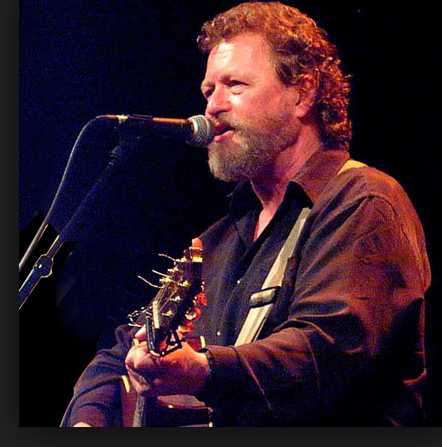 Yesterday’s ear-worm, the traditional Irish ballad, “I wish I was in Carrickfergus” was so persistent that I dropped everything to deal with it.
Yesterday’s ear-worm, the traditional Irish ballad, “I wish I was in Carrickfergus” was so persistent that I dropped everything to deal with it.
https://www.youtube.com/watch?v=yaurO8e5-mg
https://www.youtube.com/watch?v=RJMggxSzxM4
The first You Tube link is the song sung by Bruce Guthro; the second by Jim McCann (pictured above) of the Dubliners. The latter is revered by fans of the song. There is also a version by Loudon Wainright III, done for Boardwalk Empire, as well as Van Morrison and others by women, such as Joan Baez – https://www.youtube.com/watch?v=_S7ITkoxojI
I have been a great lover of traditional ballads ever since those halycon days when high school curriculum loosened up in the early 70’s and such poetry was taught in English class. One of my adult children thinks I sang it, but I didn’t know the words until yesterday, so I thought she was remembering other similarly tragic ballads that I put on the record player.
If you go to Wikepedia, you get arcane tips on where the song came from, the fact that Carrickfergus is in County Antrim, which other ballads may have been melded to create it, etc. In other places, you will learn that the Irish actor, Peter O’Toole taught it to Dominic Behan who recorded it – thus bringing it to popular attention- and supposedly, added a verse of his own. On other sites, you will learn that it was written by Van Morrison, James Taylor, etc. Or perhaps it was written by an Irish poet who died in 1745. I’m tempted to say I wrote it. Why not? Usually, old ballads like this are ascribed to Anonymous and since they were orally transmitted, there are many versions. Perhaps my daughter is right about hearing the song in childhood because I have a memory of knowing how Joan Baez gave new meaning to the last two lines: Ah, but I am sick now, my days are numbered/ So come all you young men and lay me down.
The song begins:
I wish I was in Carrickfergus
Only for nights in Ballygran(d)
I would swim over the deepest ocean
The deepest ocean for my love to find.
Some on-line commentators find “nights in Ballygran” puzzling. Really? Joan Baez makes this clearer: “I wish I had you in Carrickfergus.” Carrickfergus names a borough or wider area than the town of Ballygrand, which is located there.
Clearly, the song is about an insurmountable obstacle, which the singer first announces can be overcome by heroic effort, but then grows sadly more realistic.
But the sea is wide and I cannot swim over
And neither have I wings to fly
If I could find me a handsome (handy) boatman
To ferry me over to my love and I (and die)
Boatmen have been associated with passage to the next life ever since the Greeks put coins on the eyes of the dead to pay for ferry passage across the River Styx. (I once spent a summer holiday on the banks of this actual river – literally.) So I think that singing and I is just a dodge to keep the crowd in the pub happy.
My childhood days bring back sad reflections
Of happy times I spent so long ago
My boyhood (girlhood) friends and my own relations
Have passed away like melting snow
Is this the verse Behan wrote? Seems so to me.
But I’ll spend my days in endless (ceaseless) roaming
Soft is the grass and my bed is free
Ah, to be back in Carrickfergus
On that long road down to the salty sea
Well, at least there was that.
And in Kilkenny it is reported
There are marble stones as black as ink (Written on stones…)
With gold and silver I did support her (he did support me)
But I’ll sing no more now till I get a drink.
I’m drunk today and I’m seldom sober
A handsome rover from town to town
Ah but I’m sick now, my days are numbered
Come all ye young men and lay me down.
So happy childhood, adult prosperity, loss, exile, vagrancy and drunkenness. These verses speak to the part of me that would love to deal with such loss by staying drunk. Fortunately, this is not an overwhelming urge because I ration the pinot grigio strictly. The lines encourage empathy in me for less sober types.
Having spent the whole day with the song, listening to it over and over, I had a good grieve. Catharsis, we English teachers call it, fear and pity that cleanse the heart.
In the end, however, I fell in love with the full-throated voices of the singers, as if it were being sung by my beloved. The song is full of the deep suffering life can bring us, the dreams that get trashed, the lovers and children and houses and status lost. But, even though we may be wanderers from town to town and deeply in need of comfort, something has been guiding us to where we are, which is where we need to be.
The alternate ending to the second verse seems to me truer to the tale the singer is telling.
